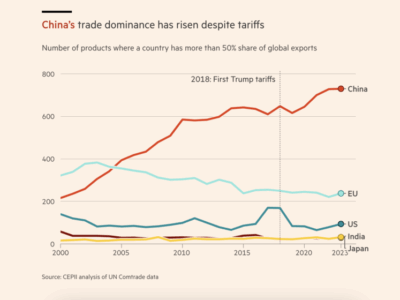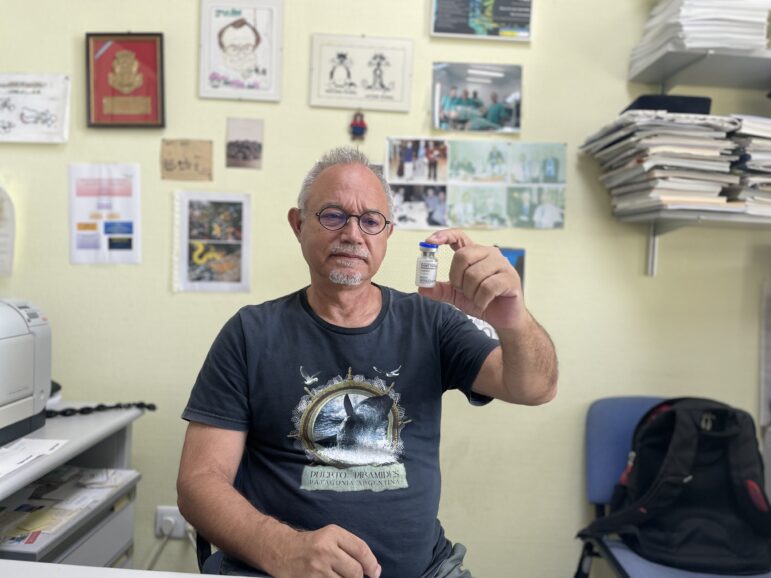
Amazon, the world’s second-largest company, has not yet compensated dozens of migrant laborers forced to pay hefty recruitment fees to secure work at its warehouses in Saudi Arabia, according to new reporting by The Guardian.
The online retail giant announced in February that it had paid $1.9 million in reimbursements to more than 700 current and former overseas workers. The payments came after the recruitment fees and other unfair practices were exposed by Trafficking Inc., a joint investigation by ICIJ, The Guardian, NBC News and Arab Reporters for Investigative Journalism.
But 33 of 44 Amazon contract workers interviewed by The Guardian since the announcement said they have not been reimbursed, despite believing they are eligible to be.
Several of those workers from Nepal, some of whom still work in Amazon’s Saudi operations, told The Guardian they felt doubly mistreated by the company.
“In Saudi, many people asked questions about our recruitment fees. Amazon and other organizations also asked questions. But they haven’t reimbursed money yet,” Hari Prasad Mudbari said. “Now I feel like they played a game against me.”
The Nepali laborer reportedly paid roughly $1,500 in recruiting fees and other costs to land a job as a contract worker at an Amazon warehouse in Saudi Arabia. Other workers from Nepal shared similar stories with The Guardian, saying they had lost hope of getting their money after being asked by Amazon staffers and others about the fees, only to return home without further information.
“If Amazon wanted to give us the money back, they could have done it right away,” said Santosh Biswakarma, whose recruiting costs amounted to around $1,700, according to The Guardian. “It’s a big, rich company. They could do it immediately.”
In a written statement to The Guardian, Amazon said it had arranged reimbursements for another 151 workers since its announcement in February and that it was continuing to work to identify and pay workers who qualify for compensation.
“These are complex processes that take time, and we’re doing our best to expedite reimbursement,” an Amazon spokesperson said in the statement. “We’re also grateful to the workers who have participated throughout this process and shared their experiences.”
The spokesperson said that the process had been complicated by many workers returning to Nepal and, in some cases, changing their phone numbers or home addresses. The Guardian noted it had tracked down scores of workers through Facebook and referrals from their co-workers.
‘Give the money back’
As part of Trafficking Inc., ICIJ and its media partners interviewed more than 50 migrant laborers who said they had been duped by recruiting agencies in Nepal and then suffered under poor working conditions at Amazon warehouses in Saudi Arabia. The workers said they had paid fees ranging from roughly $830 to $2,300 to the agencies for the jobs — amounts far exceeding what’s allowed by Nepal’s government and running afoul of American and United Nations standards.
Most of the workers said recruiters misled them about the terms of their employment by falsely promising they would work directly for Amazon. Instead, they said, they ended up employed by Saudi labor supply firms that placed them in short-term contract jobs at Amazon warehouses, then siphoned away their wages.
In response to Trafficking Inc. and a separate investigation by the human rights group Amnesty International, Amazon said it was “deeply concerned” that some of its contract workers in Saudi Arabia were not treated with “the dignity and respect they deserve.”
According to The Guardian, the company worked with a human rights consulting group based in London, Impactt, to arrange the refunds for eligible workers from Nepal, India, Pakistan and other countries.
But current and former workers who received reimbursements told The Guardian they thought the formula was broken because it ignored an important factor: nearly all the workers had to borrow money at exorbitant interest rates — some as high as 55% annually — to cover the recruitment fees.
One worker refunded by Amazon said he paid nearly $2,570 to pay off a $1,700 loan with a 36% interest rate. And yet, he received little more than $1,600, according to an Impactt document he shared with The Guardian. “It’s not full compensation,” he said.
The Amazon spokesperson told The Guardian that the company did take into account the interest workers paid on their loans when determining their reimbursements.
Momtaj Mansur, a Nepali worker who was featured in Trafficking Inc., was among the workers reimbursed by Amazon, according to The Guardian.

In 2023, Mansur told ICIJ he had “lost everything” after traveling from his home in Kathmandu to Riyadh, the Saudi capital, for what he thought was a job working directly at Amazon. Once there, he learned a third-party firm employed him and had placed him in a contract position at an Amazon warehouse. He was later fired without warning, leaving him to languish in a squalid bunkhouse.
Mansur, now back home in Nepal, told The Guardian that while he was pleased to receive the reimbursement, he had already suffered when moneylenders pressured his family to repay his loans. He said that Amazon should “give the money back to all other workers.”
“Wherever they work, whichever country they’re from, whatever work they do, if they’ve paid unnecessary fees to get a job, repay their money,” he said.
This story is based on reporting by Pramod Acharya and Michael Hudson for The Guardian. Read the full story here.















